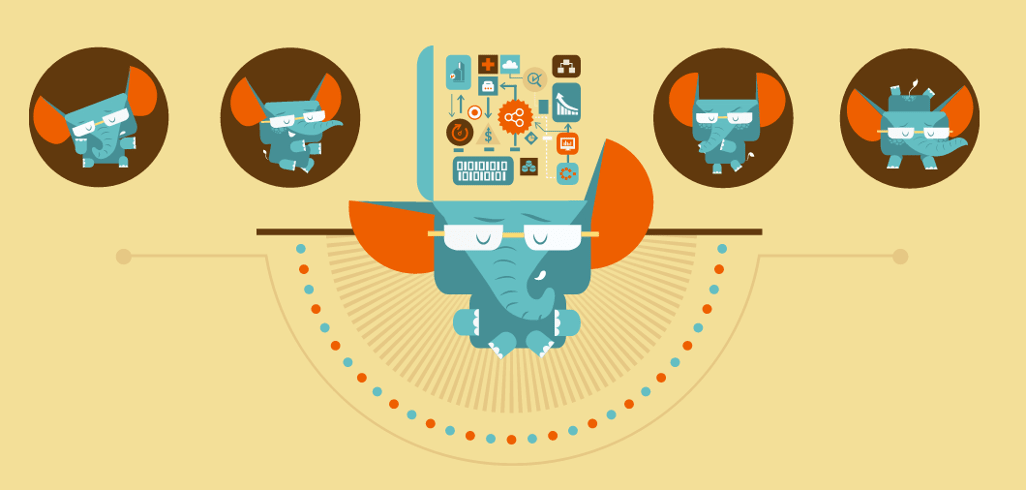
The Fifth Elephant round the year submissions for 2019
Submit a talk on data, data science, analytics, business intelligence, data engineering and ML engineering
usha rengaraju
@usharengaraju
Submitted May 21, 2019
The event disease happens when there is a slip in the finely orchestrated dance between physiology, environment and genes. Treatment with chemicals (natural, synthetic or combination) solved some diseases but others persisted and got propagated along the generations. Molecular basis of disease became prime center of studies to understand and to analyze root cause. Cancer also showed a way that origin of disease, detection, prognosis and treatment along with cure was not so uncomplicated process. Treatment of diseases had to be done case by case basis (no one size fits).
With the advent of next generation sequencing, high through put analysis, enhanced computing power and new aspirations with neural network to address this conundrum of complicated genetic elements (structure and function of various genes in our systems). This requires the genomic material extraction, their sequencing (automated system) and analysis to map the strings of As, Ts, Gs, and Cs which yields genomic dataset. These datasets are too large for traditional and applied statistical techniques. Consequently, the important signals are often incredibly small along with blaring technical noise. This further requires far more sophisticated analysis techniques. Artificial intelligence and deep learning gives us the power to draw clinically useful information from the genetic datasets obtained by sequencing.
Precision of these analyses have become vital and way forward for disease detection, its predisposition, empowers medical authorities to make fair and situationally decision about patient treatment strategies. This kind of genomic profiling, prediction and mode of disease management is useful to tailoring FDA approved treatment strategies based on these molecular disease drivers and patient’s molecular makeup.
Now, the present scenario encourages designing, developing, testing of medicine based on existing genetic insights and models. Deep learning models are helping to analyze and interpreting tiny genetic variations ( like SNPs – Single Nucleotide Polymorphisms) which result in unraveling of crucial cellular process like metabolism, DNA wear and tear. These models are also responsible in identifying disease like cancer risk signatures from various body fluids. They have the immense potential to revolutionize healthcare ecosystem. Clinical data collection is not streamlined and done in a haphazard manner and the requirement of data to be amenable to a uniform fetchable and possibility to be combined with genetic information would power the value, interpretation and decisive patient treatment modalities and their outcomes.
There is hugh inflow of medical data from emerging human wearable technologies, along with other health data integrated with ability to do quickly carry out complex analyses on rich genomic databases over the cloud technologies … would revitalize disease fighting capability of humans. Last but still upcoming area of application in direct to consumer genomics (success of 23andMe).
This road map promises an end-to-end system to face disease in its all forms and nature. Medical research, and its applications like gene therapies, gene editing technologies like CRISPR, molecular diagnostics and precision medicine could be revolutionized by tailoring a high-throughput computing method and its application to enhanced genomic datasets.
Basics of Genetics
A. Types of Nucleic Acid (DNA & RNA)
B. Structure of Nucleic Acid
C. What is gene?
D. Basic gene regulation
Basics of genetic mutation
A. What is genetic mutation?
B. Types of mutations
C. Why mutation occurs
D. Origin of cancer and it’s progression
Basics of genetic testing
A. Sequencing technique
B. Next generation sequencing
Hands On:(CNN )
A. Problem 1: Detecting actively coding regions (the discovery of transcription-factor binding sites in DNA.)- 30 minutes(Handson)
B. Problem 2: Deep convolutional neural networks for accurate somatic mutation detection -30 minutes( Handson )
Dr.C.S.Jyothirmayee
As Senior Technology Innovation Specialist,work on exploring innovative technologies in the field of biology. Before Novozymes, worked on comparative genomics of H. Pylori, mutational analysis of cataract protein and developing human model for cancer studies at prestigious national laboratories at CDFD, CCMB (Hyderabad) and NCCS, Pune respectively.
Additionally, I am a registered patent agent. Combining my domain knowledge in Biological science and application oriented patent analytics (PatInformatics) and work one three areas:
a. Using Patent & Literature data for deriving technology evolution insights for future project planning
b. Pitching new ideas and exploring their feasibility
c. Networking with new ventures and exploring new areas for organization opportunities.
Publication Links:
{{ gettext('Login to leave a comment') }}
{{ gettext('Post a comment…') }}{{ errorMsg }}
{{ gettext('No comments posted yet') }}